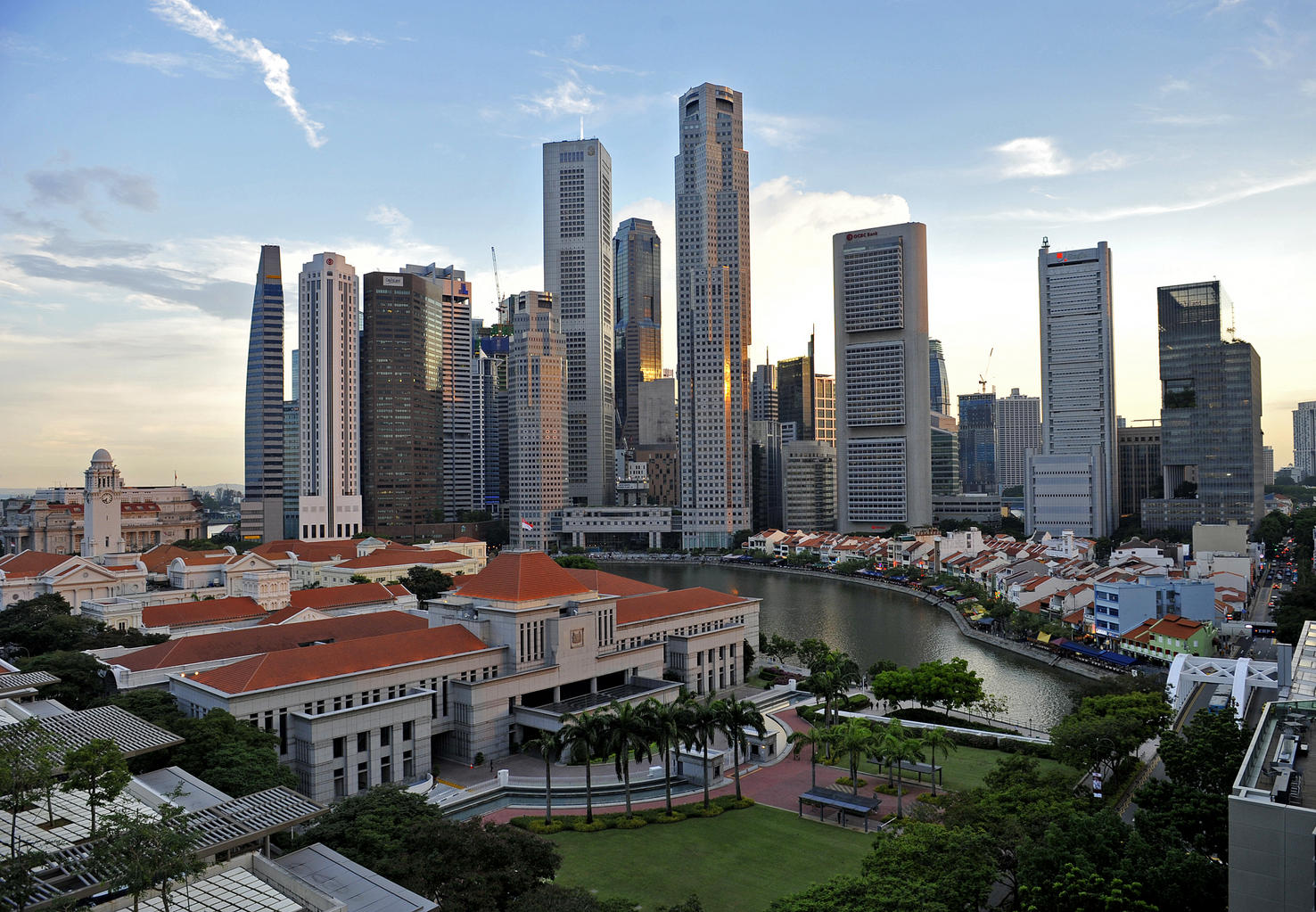Singapore Budget 2017: Budgets to grow at a slower pace, future tax raises being considered
Sign up now: Get ST's newsletters delivered to your inbox

A bird's eye view from the rooftop of the Treasury of Parliament House, Boat Quay, Singapore River and the Singapore financial district.
PHOTO: ST FILE
Rachel Au-Yong
Follow topic:
SINGAPORE - Government Budgets will grow at a slower pace, owing to the need to deliver more "value-for-money" services even as spending needs increase.
Finance Minister Heng Swee Keat said on Monday (Feb 20) that the Government will apply a permanent 2 per cent downward adjustment on the Budget caps of all ministries and organs of state from this financial year onwards.
This means that the budget growth projections that the agencies are currently operating on will shrink, although it does not amount to a budget cut.
Four ministries that are serving security needs or significantly expanding their services will see the adjustment phased in over FY2017 and FY2018. These are: Home Affairs, Defence, Health and Transport.
He added that he expects expenditure needs to increase rapidly in the years to come, especially in healthcare and infrastructure. For example, annual healthcare spending has more than doubled to around $10 billion in FY2016, compared to five years ago. This amount will rise as the population ages, he added.
Similarly, the Government is pumping in $20 billion over the next five years to expand the MRT network, and "tens of billions" into the new Changi Terminal 5.
He said: "With our spending needs increasing, the Government must continue to spend judiciously, emphasise value-for-money and drive innovation in delivery." "We can do better - and more - for less."
Mr Heng said that some of the savings from the ministries' budgets will be channelled towards "cross-agency projects that deliver value to citizens and businesses," such as the Municipal Service Office, which works with government agencies to resolve municipal issues, especially those where multiple organisations are involved.
In addition to managing resources prudently, the Government will grow its revenues to finance the growing expenditures, he said.
"Growing our economy is the first and most important step to increasing our revenues sustainably," he said. "We need to achieve this growth by implementing the strategies set out in the CFE (Committee on the Future Economy)."
The second step is to strengthen Singapore's revenue base in a "pro-growth and progressive manner".
The Government will bring its tax system in line with international tax regulations, and also raise revenues through new taxes or raise tax rates.
Said Mr Heng: "Domestically, we will also face rising expenditures over the longer term, as we invest more in healthcare and infrastructure. We will have to raise revenues through new taxes or raise tax rates. We are studying the options carefully. We must make these decisions in good time, to ensure that our future generations remain on a sustainable fiscal footing."
Mr Heng said he expects a budget surplus of $5.2 billion for FY2016, or 1.3 per cent of the gross domestic product (GDP). This is higher than the surplus of $3.4 billion - or 0.8 per cent of GDP - budgeted a year ago.
However, excluding the government's top-up to funds and Net Investment Returns Contribution from past reserves, there is an expected basic deficit of $5.6 billion, or 1.4 per cent of GDP.
"FY2016 was hence an expansionary budget," said Mr Heng.
It remains an expansionary budget for the upcoming financial year, he said, adding that the expenditures are expected to be $3.7 billion, or 5.2 per cent higher than for FY2016. A smaller budget surplus of $1.9 billion, or 0.4 per cent of GDP, is expected in FY2017.
"As we expect expenditures to continue rising in the long term, this budget position is prudent, while supporting firms and households in the midst of continued economic restructuring," he said.

